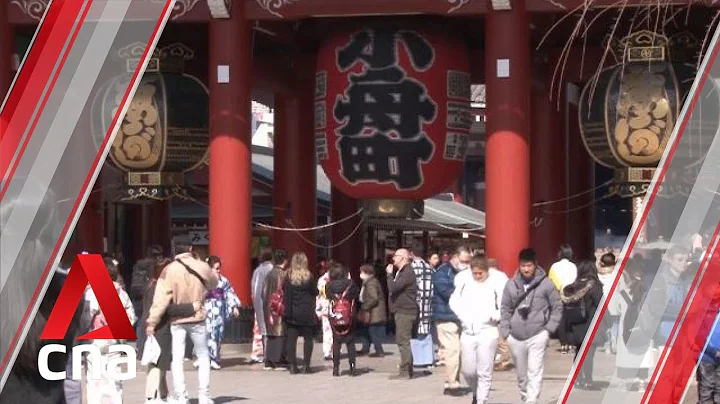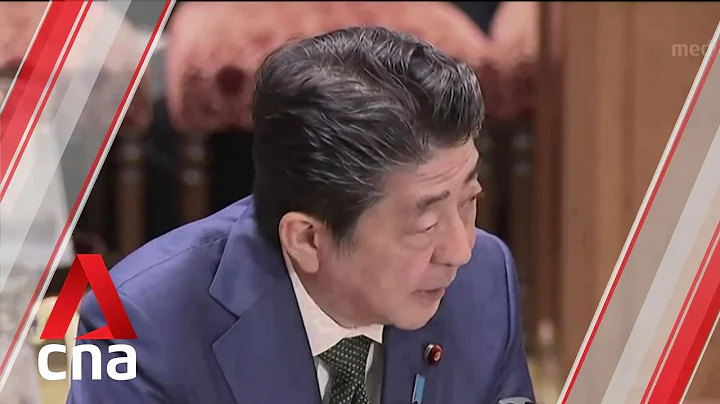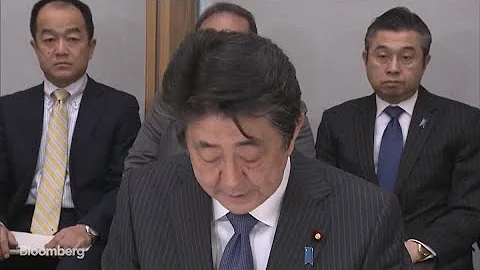At 5:55 a.m. local time on July 9, the hearse carrying the body of former Japanese Prime Minister Shinzo Abe drove from the Nara Prefectural Medical University Affiliated Hospital to Abe 's home in Tokyo. The drive was about 7 Hours. According to NHK reports, this arrangement is in compliance with the wishes of Mrs. Abe Akie Abe. As planned, Abe’s funeral will be held on July 12.

TV footage of Abe being taken to the hospital after being shot. Image source: Internet video screenshot
One day ago, Shinzo Abe was shot while participating in the Liberal Democratic Party election event in Nara. He died of excessive blood loss that afternoon at the age of 67.
Abe is the longest-serving prime minister since the formation of Japan’s modern cabinet system and one of the most important political figures in Japan this century. Abe's assassination shocked Japan and the world. Japanese Prime Minister Fumio Kishida delivered two nationwide speeches on the 28th, strongly condemning the attacks, and all walks of life in Japan's government and opposition parties also showed unprecedented unity. Overseas, the White House in the United States lowered the flag at half-mast, and the Indian Prime Minister declared July 9 as the "National Day of Mourning." Russian President Vladimir Putin also sent a letter of condolences to Abe's family, calling Abe an "outstanding statesman."
According to the latest report from CCTV News , President Xi Jinping sent a message of condolence to Japanese Prime Minister Fumio Kishida on July 9 regarding the death of former Japanese Prime Minister Shinzo Abe.
It is not the reappearance of "assassination politics"
After the Japanese media announced the identity of Tetsuya Yamama, the suspect who shot Abe, as a "former Maritime Self-Defense Officer", public opinion once compared this case with the many cases in Japanese history initiated by far-right militarists. Political assassinations linked together.
In 1921, Prime Minister Hara Kei, who advocated peaceful diplomacy, was stabbed to death with a dagger by a Manchurian Railway employee at Tokyo Railway Station, becoming the first prime minister to be assassinated while in office. Before him, Hirobumi Ito, who served as Prime Minister of Japan, was assassinated by Korean patriots in 1909. Since then, Japanese Prime Minister Hamaguchi Yukio and Inukai Takeshi have been assassinated by right-wing elements. In the "February 26 Incident" in 1936, mutinous soldiers killed former Prime Ministers Minoru Saito and Korekiyo Takahashi. This is also the last time in Japanese history that a prime minister-level figure was assassinated-until July 8, 2022.
After being arrested by the police, Tetsuya Yamama confessed that he did not shoot out of resentment against Shinzo Abe's political ideology, but "just to kill him." He also claimed that he assassinated Abe because he believed that Abe was connected to a religious organization that had "ruined" the family on the mountain. Yuki Tatsumi, senior researcher and director of the East Asia Center at the Stimson Center, an American think tank, said in an interview with " China News Weekly " that she prefers to call the suspects "disaffected citizens." She emphasized that the suspect in this case does not seem to have a clear relationship with Japan's extreme right-wing and far-left political groups.

A doctor from Nara Medical University Affiliated Hospital introduced Abe’s situation after he was sent to the hospital. Image source: Internet video screenshot
Fumiko Sasaki, assistant professor of international politics at Columbia University, emphasized that the assassination was not in line with the behavior of Japan's far left and far right in the past half century. On the one hand, after the end of the Cold War, there are very few active far-left groups in Japan; on the other hand, political assassinations by far-right groups after the 1970s were mostly considered to be "political shows" and rarely caused serious harm to politicians. Death, and such actions have become rare in the past ten years.
"Also, I don't think any right-wing extremists will use this method against Abe. Abe himself is right-wing, so right-wing extremists don't have to 'do too much' because Abe's governance largely reflects their wishes." Fumiko Sasaki told China News Weekly.
Based on the current information analysis, although Abe is a politician, this incident cannot be regarded as a "political assassination", let alone that there is a "systemic risk" of intensified assassination activities in Japan.However, Yuki Tatsumi pointed out that no matter how this case is ultimately characterized, it will raise questions about the security of political leaders.
In an earlier interview, Brunson, an expert on Japanese issues at Durham University in the United Kingdom, also said that the current Prime Minister Fumio Kishida must face a choice: whether to temporarily postpone the Senate election on July 10 for security reasons, or "prove through the election that he will not back down." posture". On the evening of July 8, Fumio Kishida stated that he would not postpone the national election at this time. However, most politicians, including Fumio Kishida himself, have suspended street campaigning. However, a few political parties such as the Cadet Party still insisted on taking to the streets to pray for votes, saying they were "not afraid of terror."
The post-Abe era: More unity or division?
"Anyway, Abe is a very controversial figure, and many people in Japan don't like him." Sasaki Fumiko said. However, after Abe's death, both the current Prime Minister Fumio Kishida, who has long had political differences with Abe within the Liberal Democratic Party and is regarded as Abe's rival, and the leaders of the left-wing Social Democratic Party and the Communist Party of Japan, who have always been critical of the Abe regime, expressed their disapproval of Abe. Deeply condolences for his death and strongly condemns the assassination.
Some analysts believe that this "unity" scene is due to Abe's death due to the "terrorist activity" of assassination, and does not represent recognition of Abe. The Japanese political ecology in the "post-Abe" era will be further divided; but there are also concerns. , the assassination operation may "heroize" Abe's image in Japanese political life, allowing his right-wing "legacy" to dominate the political trend.
In this regard, Fumiko Sasaki pointed out that before Abe’s assassination, the political decision-making of the Liberal Democratic Party had been subject to the most powerful Abe faction. Fumio Kishida was only elected president with the support of the Abe faction. Therefore, “Although Fumio Kishida is a dove of the Liberal Democratic Party 'representative, and Abe is a 'hawkish' leader, but Fumio Kishida's governance must reflect Abe's philosophy."
However, after Abe’s death, the Abe faction of the Liberal Democratic Party lost its most influential leader. The political influence of the existing important figures is not as good as Fumio Kishida and former Secretary-General Toshihiro Nikai. The "young people trained by Abe" The first generation Takaichi Sanae is even worse than Kono Taro and other backbones of the faction. Will the Abe faction split over this? Will Fumio Kishida become the most important leader of the Liberal Democratic Party? Fumiko Sasaki said that this will depend on Kishida Fumio's next specific actions: He is likely to continue Abe's philosophy in the short term and appear to respect Abe's wishes more, but in the long term he may make more decisions that "he really wants to make." The problem is the timing and timing of the transition.
Some analysts pointed out that if the "long-term ruling" Liberal Democratic Party really enters the "post-Abe era" due to Abe's assassination, Japanese society will face dual changes. On the one hand, because Abe’s administration has intensified divisions and polarization in Japanese society, Abe’s right-wing supporters regard his opponents as “unpatriotic”; if leaders in the “post-Abe era” can alleviate social divisions, Japanese society will will become more united.
But on the other hand, one of Abe's main legacies is "making Japan look stronger" because he ended the era of changing prime ministers every year and making Japanese politics look unreliable. If the Abe faction suffers a heavy blow that eventually destabilizes the Liberal Democratic Party and Japan's political arena, Japan may still return to a period of chaos with frequent changes in prime ministers.
Yuki Tatsumi said that it is difficult to make an accurate judgment at the moment about the widespread impact of Abe’s death on Japanese politics and society, but what is certain is that the uneasiness is temporary, and Japanese people are generally “actually very calm.”
Fumio Kishida’s New Balance between China and the United States
In addition to the impact on domestic affairs, the most important “legacy” left to Japan by Shinzo Abe is the foreign and security strategy.Some analysts worry that although Abe pursued a right-wing and "pragmatic" foreign policy during his tenure and made positive contributions to easing and developing Sino-Japanese relations, Abe's death may cause Japan's right-wing politicians to receive a lot of "sympathy" "vote", thereby negatively affecting sensitive issues such as "constitutional amendment" and China-Japan, Japan-South Korea relations.
However, before Abe’s assassination, the Liberal Democratic Party was already leading in two-thirds of the upper house elections. Whether this incident will have an impact on other more distant elections depends on changes in the international and domestic situation in the coming period, which is difficult to judge.
Yuichi Hosotani, a professor of international politics at Keio University and an advisory committee member of the National Security Council during Shinzo Abe’s administration, analyzed in China News Weekly that Abe’s most important “legacy” in the fields of diplomacy and security is “comprehensive , a comprehensive vision for external relations”. Before Abe, Japan's foreign policy was just a "patchwork of bilateral relations." Each department of the Ministry of Foreign Affairs operated independently of other departments and focused on optimizing the development of a certain important bilateral relationship. The role of Prime Minister was mainly to coordinate the work of these departments. Contradictions and conflicts.
It was not until the Abe administration that the concept of "diplomacy with a global perspective" was implemented. Against this background, Abe has appeared on the international stage as a "defender of globalization." During his term of office, Abe has made more than 170 visits to more than 80 countries. According to statistics, he is the Prime Minister who has visited the second most countries in Japanese history. is twice as powerful as . In the context of the United States' withdrawal from the group, Abe continues to promote the realization of the Comprehensive and Progressive Agreement for Trans-Pacific Partnership (CPTPP) and promotes free trade with the United States and the European Union. Fumiko Sasaki described these measures as “bringing Japan back to the center of world politics.”
But at the same time, under the banner of "actively contributing to peace," Abe has made several attempts to break through the restrictions on the right of collective self-defense in the "Peace Constitution" and passed multiple separate legislations, opening the door for Japan's partial participation in "collective security" activities. "Pandora's Box".
In view of Abe’s right-wing diplomacy and security “legacy”, Fumio Kishida, as a “senior diplomat”, may take more and more “dovish” measures that are different from Abe in the long term. But in terms of overall strategy, the "global vision" will not change. The combination of "dove" and "global vision" may mean that Fumio Kishida has the opportunity to find a better balance between China and the United States and promote the healthy development of Sino-Japanese relations.
"Abe's idea when he came to power was: How can Japan best survive in the great power competition between China and the United States? But this is a wrong question." Yuichi Hosaya pointed out, "The United States is Japan's ally, and China is Japan's largest trade Partners, what Japan needs is an international order that allows China and the United States to coexist. Japan should actively promote the formation of such an order instead of passively responding to competition among major powers."
Reporter: Cao Ran
.




















